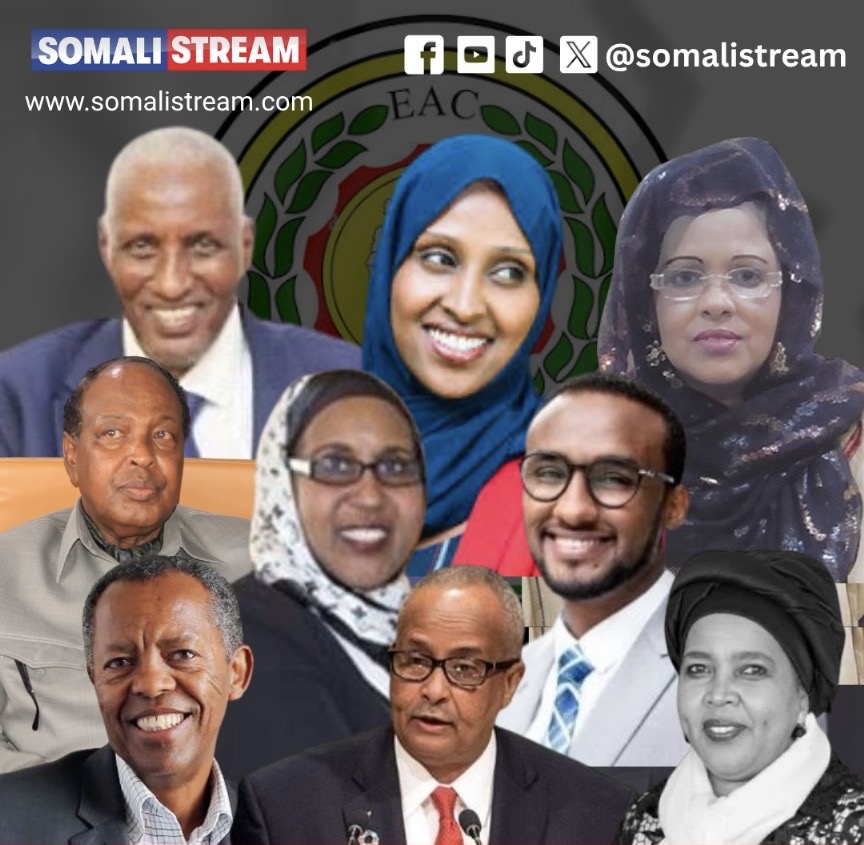MOGADISHU, Somalia – In a move of remarkable political foresight, Somalia has made its most definitive statement of intent since rejoining the community of nations. The election of its first nine members to the East African Legislative Assembly (EALA) on October 15, 2025, was not merely the fulfillment of a bureaucratic requirement following the nation’s formal accession to the East African Community (EAC) in March 2024. Instead, it was a calculated act of statecraft. The list of names sent to Arusha is the real story: a carefully assembled cohort of world-class technocrats, seasoned diplomats, and institutional reformers poised to transition Somalia from a new member into a regional powerhouse.
For years, Somalia’s engagement with the EAC has been one of aspiration. Now, with this election, the nation moves decisively from “mere participation to full integration,” ready to not only benefit from EAC policies but to co-author them. The Somali Federal Parliament, in a laudable display of strategic maturity, has clearly understood the assignment. Rather than a roster of familiar political insiders, they have assembled a multi-disciplinary team, each member bringing a specific, high-value skill set directly addressing Somalia’s most pressing needs and ambitious opportunities within the bloc.
The Economic Architects: Engineering Somalia’s Financial Integration
At the heart of the EAC is a common market, and Somalia’s primary need is to seamlessly integrate its recovering economy. To navigate the complex fiscal and regulatory frameworks, the parliament has selected two of its most formidable financial minds.
Ambassador Abdisalam Omer Hadliye is, in essence, an institutional turnaround specialist. His legacy includes not only steering Somalia’s Central Bank as Governor and leading its foreign policy as Minister of Foreign Affairs, but also a storied career in the United States where he was credited with helping restore Washington, D.C.’s fiscal health as its Budget Director. His expertise is precisely what is needed to align Somalia’s financial systems with EAC standards and to advocate for policies that foster sustainable growth.
Working in tandem is Abdirahman Bashir Shariff, who brings an insider’s mastery of the world’s most powerful financial institutions. As a Senior Advisor at the World Bank and a former Deputy Ambassador to the U.S., he was a key figure in the architecture of Somalia’s debt relief and fiscal reform agenda. His presence in Arusha ensures that Somalia’s voice will be fluent in the language of international finance, capable of shaping dialogues on development financing and private sector growth from a position of deep knowledge.
The Visionaries: Building Modern Infrastructure and Diplomatic Bridges
The EAC’s vision includes massive regional infrastructure projects in transport, energy, and digital connectivity. To capitalize on this, Somalia needs experts who can plan modern, equitable, and sustainable systems.
Another notable figure is Faisal A. Roble. With three decades of experience as a Principal City Planner for Los Angeles, he is a world-class expert on the very challenges the EAC aims to solve. His work integrating transportation, housing, and climate resilience policies in one of the world’s largest metropolises provides Somalia with an unparalleled advantage in shaping regional infrastructure to be fair, modern, and sustainable.
Roble’s technical vision is perfectly complemented by the diplomatic acumen of Ambassador Zahra Ali Hassan. Having served as Somalia’s envoy to EAC members Tanzania and Rwanda, she possesses the hands-on regional experience necessary to build the political alliances required to turn ambitious projects into reality. Her background as a senior advisor on constitutional affairs and reconciliation means she is adept at navigating the intricate political landscapes both within Somalia and across the region.
Joining them is veteran politician Ambassador Abukar Osman Abdi, known as Mardaadi, who held ministerial positions in three different governments since the inception of Somalia’s Third Republic in 2000. He also served as Somalia’s Ambassador to Malaysia and acted as Dean of Ambassadors for both the African Union (AU) and the Organization of Islamic Cooperation (OIC). These distinguished roles elevated his profile when he faced Ali Abdinur Osman in a highly contested election, securing a decisive victory with 152 votes to his rival’s 68.
The Peacemaker: Weaving Stability into Regional Security
For a region where peace and development are inextricably linked, Somalia has put forward one of its most accomplished peacebuilders. Ilham Ali Gassar brings over 15 years of on-the-ground experience in conflict resolution and stabilization. Her pivotal role as a UN political advisor in mediating landmark agreements like the Galkayo Peace Accord is not just a line on a CV; it is proof of an ability to forge consensus in the most complex environments. Her expertise in security risk management and compliance with international standards will be invaluable as the EAC tackles regional security challenges, from maritime cooperation to counter-terrorism.
A Calculated Message
This is more than just a roster of impressive individuals; it is a strategic ensemble. Somalia has assembled a team that covers the full spectrum of regional integration: high finance, urban development, intra-regional diplomacy, and peace and security. The message to the seven other EAC member states is clear: Somalia is not arriving in Arusha as a junior partner seeking aid, but as a peer with world-class expertise ready to contribute from day one.
The election is a defining step in a new chapter, unlocking eligibility for senior EAC leadership roles and a seat at the East African Court of Justice. With this delegation, Somalia is not just joining the conversation about East Africa’s future; it is positioning itself to lead it.


